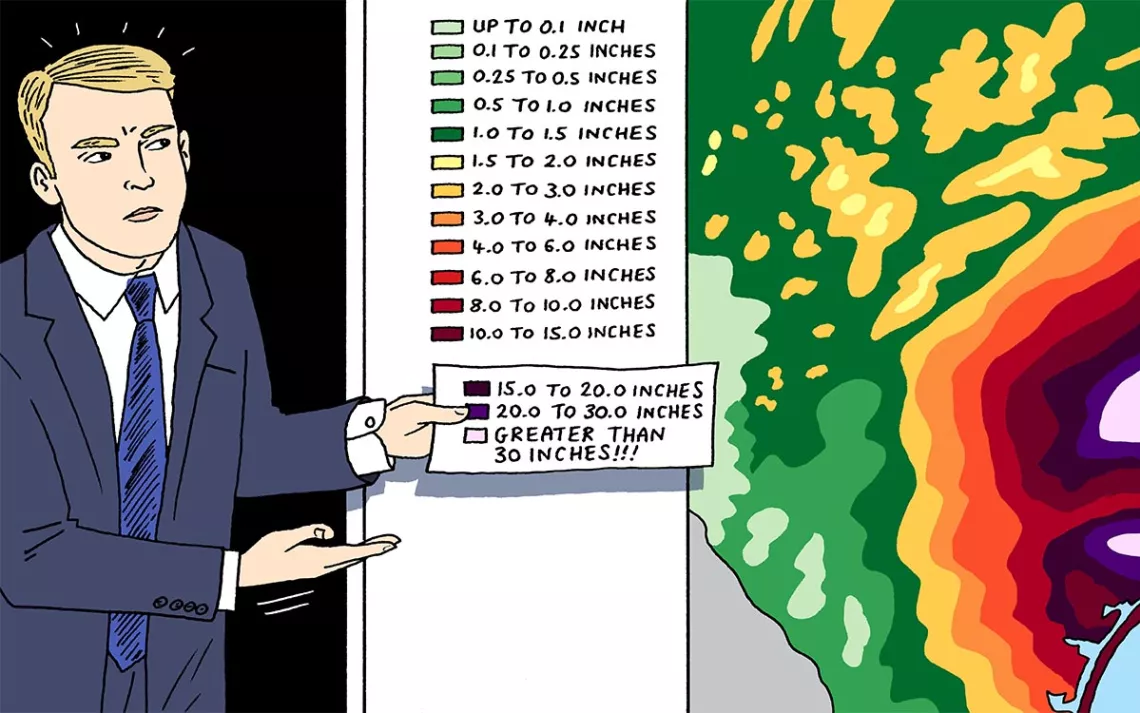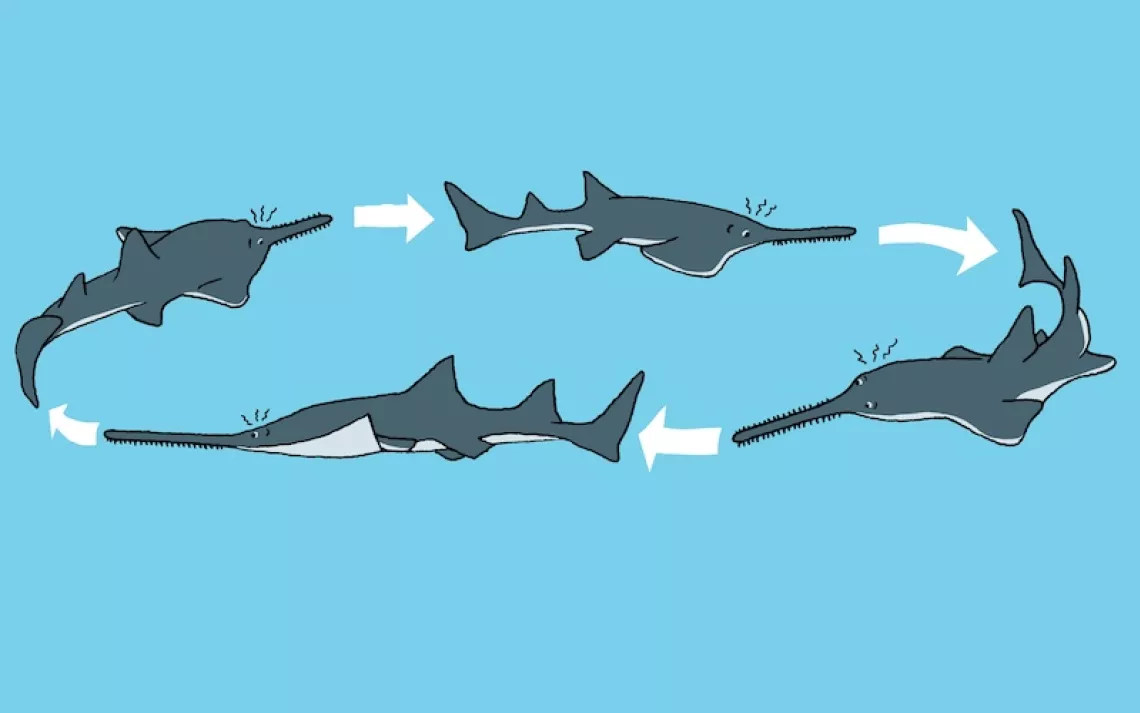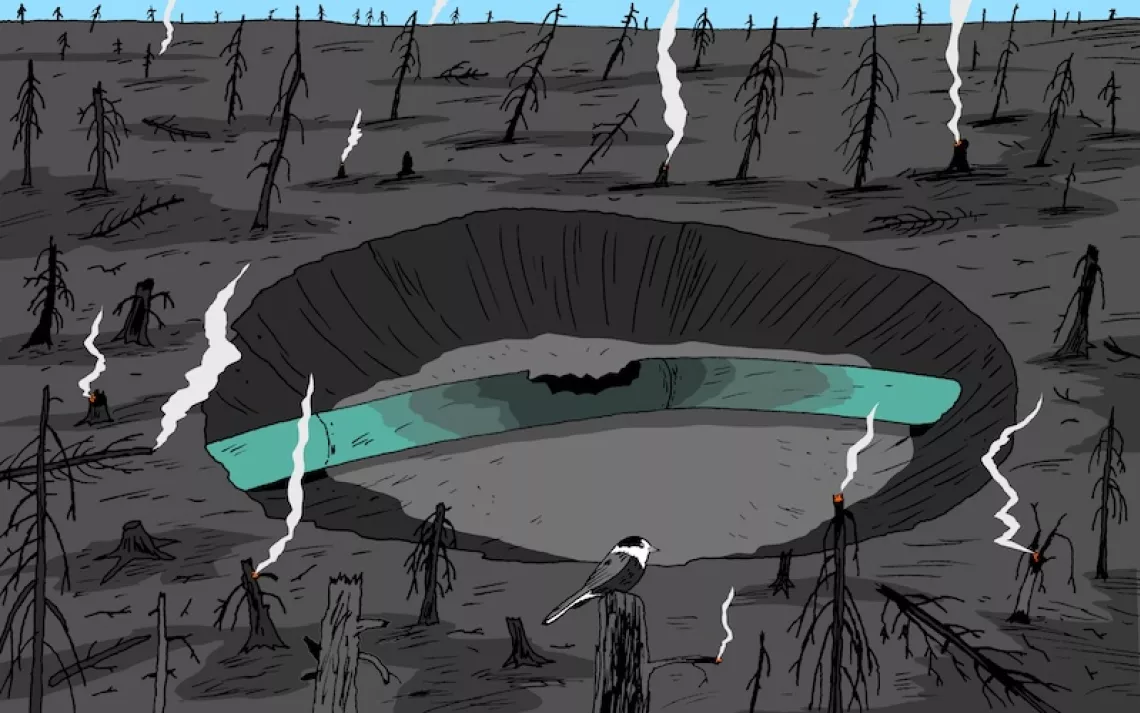Environmental News ICYMI 9-1-17
A weekly roundup for busy people

Illustration by Peter Arkle
Harvey strikes the Texas coast near Houston as a Category 4 hurricane and lingers as a tropical storm. It drops 24.5 trillion gallons of water on Texas and Louisiana, making it the most extreme rain event in U.S. recorded history. The storm is so wet that the National Weather Service has to add two new colors to its rainfall charts to represent it. Flooding from the storm creates a vast inland lake, leaving 30 percent of sprawling Harris County underwater. It is blamed for at least 30 deaths and leaves hundreds of thousands of people homeless.
Leading climate scientists say that climate change worsened Harvey’s impact. The EPA calls the contention “an attempt to politicize an ongoing tragedy.”
The Arkema chemical plant suffers two explosions due to flooding, spewing toxic gas. The plant's owners, backed by leading Texas Republican politicians, had successfully lobbied the Trump administration to delay new safety regulations that were to have taken effect this year.
Nine days before Harvey hit, President Donald Trump revoked an Obama-era executive order that federal infrastructure projects consider risk from floods and sea-level rise.
Floods in India, Bangladesh, and Nepal this monsoon season have killed at least 1,200 people and affected 41 million.
Snowshoe hares are responding to climate change by staying brown all year instead of turning white in the winter.
Duke Energy wants to cancel a planned nuclear plant in South Carolina. Duke Energy Florida abandons its Levy nuclear plant project in favor of a 700-megawatt solar farm.
The Department of Energy asks an ecologist at Northeastern University to eliminate references to climate change from her application for federal research funds. Other scientists receive similar instructions.
Interior Secretary Ryan Zinke supports a ban on mining near Yellowstone National Park.
Kenyans who produce, sell, or use plastic bags face a $40,000 fine or four years in prison.
 The Magazine of The Sierra Club
The Magazine of The Sierra Club







